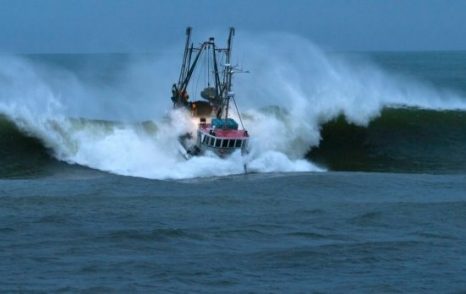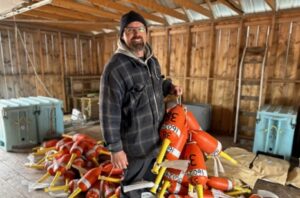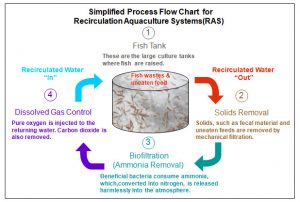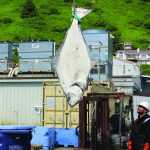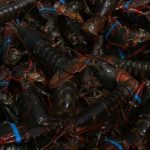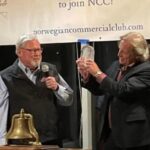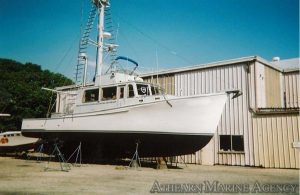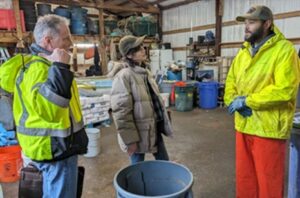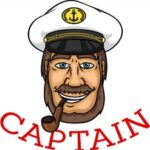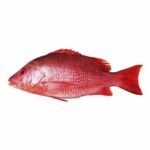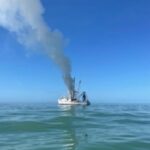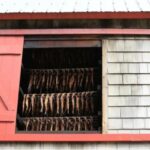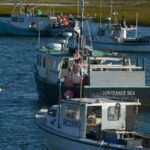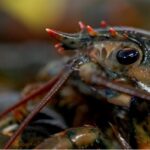Monthly Archives: January 2017
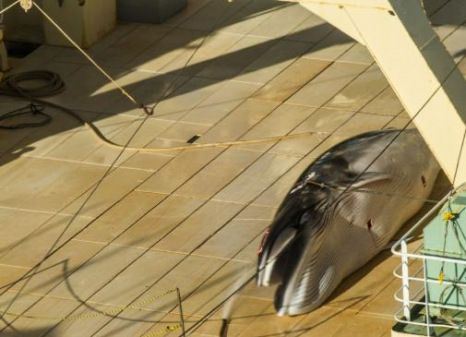
Australian Government ‘disappointed’ as minke whale slaughtered in our waters – Why the Hunt Goes On
The Federal Government has this morning condemned Japan after one of its ships was caught whaling in the waters off Antarctica. Anti-whaling group Sea Shepherd released photos showing a dead minke whale on the deck of the Nisshin Maru ship in the Australian whaling sanctuary. It appears the death was playing out at the same time as Japanese Prime Minister Shinzo Abe’s weekend meeting with Malcolm Turnbull in Sydney, at which the ABC reports whaling was ‘mentioned’, but focused on trade and defence. Japan is a signatory to the International Whaling Commission’s moratorium on whaling in force since 1986. But it exploits a loophole allowing whales to be killed for the purposes of “scientific research”. Read the story here What are the issues behind Japan’s whaling programme, and why has compromise been so difficult? Isn’t whaling banned? Not quite. The International Whaling Commission (IWC), which regulates the industry, agreed to a moratorium on commercial whaling from the 1985. But it did allow exceptions, enough for Japan to hunt more than 20,000 whales since. Read the story here 11:28
Fisherman breaks own record with 1004lb Giant bluefin tuna
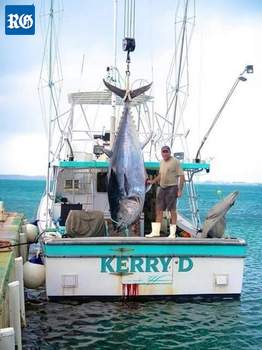 Third generation fisherman David Soares landed the biggest tuna caught in Bermuda’s waters on Saturday morning and he did so single-handedly in 15 minutes flat.The Bermudian, who said he has had it confirmed by the fisheries department that the 1004lb giant bluefin tuna that landed on his boat was the heaviest recorded in the island’s history, was also responsible for the previous record catch — a 1003lb tuna landed in the same fishing grounds in 2013. He was out fishing alone on Challenger Banks about ten miles southwest of the island on Saturday morning when he felt the tug. It was his first “bite” of the day after just five minutes with the lines out. Read the story here 09:32
Third generation fisherman David Soares landed the biggest tuna caught in Bermuda’s waters on Saturday morning and he did so single-handedly in 15 minutes flat.The Bermudian, who said he has had it confirmed by the fisheries department that the 1004lb giant bluefin tuna that landed on his boat was the heaviest recorded in the island’s history, was also responsible for the previous record catch — a 1003lb tuna landed in the same fishing grounds in 2013. He was out fishing alone on Challenger Banks about ten miles southwest of the island on Saturday morning when he felt the tug. It was his first “bite” of the day after just five minutes with the lines out. Read the story here 09:32
Fishermen and Scientists to collaberate on Trawl Surveys utilizing industry vessels in the Gulf of Maine
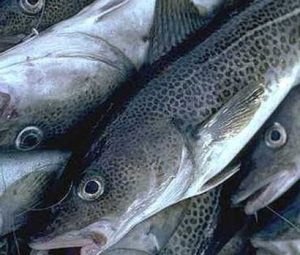 By next year, the Northeast Fisheries Science Center hopes to begin outfitting commercial boats with surveying equipment and paying fishermen to pull in catches that will supplement the regular trawl surveys conducted by government scientists, according to Russell Brown, who heads the center’s population dynamics branch. The gathered data will be fed into the complex process used to set catch quotas. It’s a collaboration that Brown hopes will give regulators a more detailed picture of the fish population and build trust among fishermen, who in turn see it as an opportunity to show the scientists what’s really going on. “It’s really perplexing that you’ve got a set of federal scientists who are sampling the ocean methodically and coming up with a very different picture than the fishermen about what’s going on out in the Gulf of Maine,” Jonathan Labaree of the Gulf of Maine Research Institute said. Read the story here 08:27
By next year, the Northeast Fisheries Science Center hopes to begin outfitting commercial boats with surveying equipment and paying fishermen to pull in catches that will supplement the regular trawl surveys conducted by government scientists, according to Russell Brown, who heads the center’s population dynamics branch. The gathered data will be fed into the complex process used to set catch quotas. It’s a collaboration that Brown hopes will give regulators a more detailed picture of the fish population and build trust among fishermen, who in turn see it as an opportunity to show the scientists what’s really going on. “It’s really perplexing that you’ve got a set of federal scientists who are sampling the ocean methodically and coming up with a very different picture than the fishermen about what’s going on out in the Gulf of Maine,” Jonathan Labaree of the Gulf of Maine Research Institute said. Read the story here 08:27
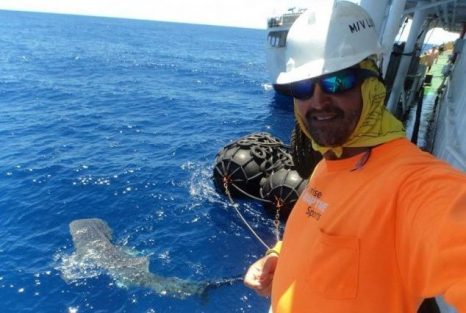
The Mysterious Disappearance of Fisheries Observer Keith Davis
A little over a year before Keith Davis disappeared at sea, he sent an ominous email to friends. In it, he linked to a video that shows four men being shot to death while they cling to debris in the ocean. After the gunshots ring out and blood spills into the water, the camera pans to the boat, reportedly a tuna fishing vessel from Taiwan, where men are laughing and posing for photos. The YouTube video describes the victims as Fijian, killed just beyond Fijian waters. Other commenters claim they were Somali pirates whose attempts at hijacking the tuna vessel off the coast of Somalia backfired. “One way or another, the video depicts murder,” wrote Davis. The 40-year-old was a fisheries observer—a member of a little-known profession tasked with traveling aboard the boats used to fish the world’s oceans to monitor and collect data from the catches—and spent much of his time far from shore. The nature of his work made him an outsider among captain and crew: a tiny, isolated speck in a vast ocean. Davis often confided to friends about his increasing unease over the lack of law enforcement at sea and the mounting dangers facing both fishermen and the observers who monitor them. The video is an extreme example of what sometimes goes on in the middle of the ocean, wrote Davis. “But know that there is other awful stuff that happens out there that goes unpublished.” Read the story here 15:04
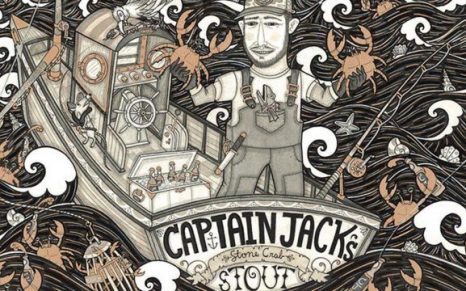
Coppertail releases beer that yes, seriously, has stone crab in it
Offering further evidence that there’s nothing craft brewers won’t incorporate into a beer, Tampa’s own Coppertail Brewing marked Friday the 13th with the release of its Captain Jack’s Stone Crab Stout, an “unconventionally flavored” brew that pays tribute to both Florida’s annual stone crab harvesting season and the anglers that brave the slightly colder winter waves in search of those delicious crustacean claws. And yeah, Captain Jack’s is literally made with stone crabs. What’s more, a portion of sales proceeds will be donated to the Florida Keys Commercial Fisherman’s Association “to promote sustainable fishing, and to help preserve the way of life of Florida fishermen.” Read the story here 12:16
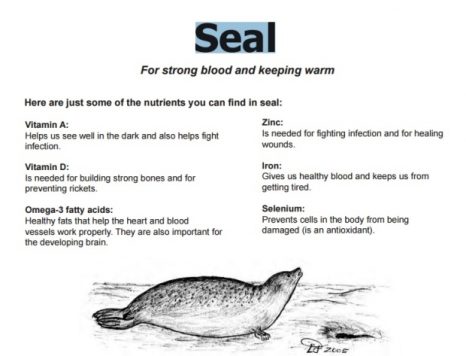
Seal meat, a Natural Sustainable Resource – Questions for those who decry seal meat and other Indigenous foods
When a Vancouver chef put seal on the menu this week he attracted some negative attention — but in Nunavut icy chunks of raw whale blubber and seal meat are common fare. Seals are not endangered, so why the aversion to seal dishes in urban Canada? It seems people are still haunted by images from the 1980s of white-furred seal pups clubbed on blood-soaked ice — images that led to cries of inhumane kill practices. These days, the seal slaughter is considered to be as humane as any food-source animal. Seals are shot and ensured to be dead. And Canada now requires mandatory training for sealers to ensure the hunt is humane. “We welcomed the news today that the popular Vancouver restaurant Edible Canada will be offering its own culinary take on East Coast seal meat in a new dish they call seal pappardelle,” said the Canadian Sealers Association. But there are questions for those who decry seal meat and other Indigenous country foods. Read the article here 10:09
Fishermen, consumers rallying to fight petition calling for shrimp trawl restrictions
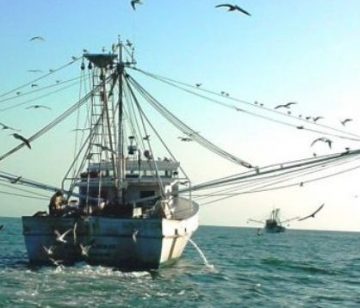 Jimmy Phillips estimates 100,000 pounds or more of shrimp comes through the family seafood market in a season; all of it fresh from North Carolina waters. “Yeah, it worries me,” Phillips said when asked about a petition for rulemaking before the N.C. Marine Fisheries Commission that would put severe restrictions on shrimping in North Carolina. “It would affect shrimping tremendously, net fishing, and everybody,” Phillips said. Phillips is just one of many fishermen, seafood industry representatives, and concerned consumers who plan to attend a Tuesday public meeting in New Bern to express their opposition to the petition. The meeting begins at 12:30 p.m. at the Riverfront Convention Center. Jerry Schill, president of the North Carolina Fisheries Association, a nonprofit trade association representing the interests of commercial fishermen, seafood dealers and processors, said the petition for rulemaking is “not only a referendum on shrimping but a referendum on the future of commercial fishing.” Read the story here 09:34
Jimmy Phillips estimates 100,000 pounds or more of shrimp comes through the family seafood market in a season; all of it fresh from North Carolina waters. “Yeah, it worries me,” Phillips said when asked about a petition for rulemaking before the N.C. Marine Fisheries Commission that would put severe restrictions on shrimping in North Carolina. “It would affect shrimping tremendously, net fishing, and everybody,” Phillips said. Phillips is just one of many fishermen, seafood industry representatives, and concerned consumers who plan to attend a Tuesday public meeting in New Bern to express their opposition to the petition. The meeting begins at 12:30 p.m. at the Riverfront Convention Center. Jerry Schill, president of the North Carolina Fisheries Association, a nonprofit trade association representing the interests of commercial fishermen, seafood dealers and processors, said the petition for rulemaking is “not only a referendum on shrimping but a referendum on the future of commercial fishing.” Read the story here 09:34
Statoil: Fishermen lobby for new spot for proposed Long Island wind farm
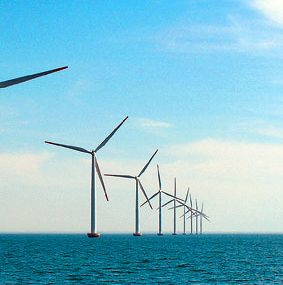 In Joe Gilbert’s view, fishermen like him shouldn’t have to compete with wind farms for a piece of the ocean. “We’re not anti-wind farm,” Gilbert said this past week. “But we don’t want to trade one renewable resource — fish — for another one — wind. They can both exist.” Gilbert is the owner of Empire Fisheries, which has four scallop and squid fishing boats based at the Town Dock. He’s also a member of the board of the Fisheries Survival Fund, one of 12 fishermen groups from New England to New Jersey opposing the federal government’s recent approval of a provisional lease to a Norwegian company that proposes to develop a wind farm on 79,350 acres of ocean bottom about 13 miles south of Jones Beach in Hempstead, Long Island. “What we’re asking is that it be relocated,” said Meghan Lapp, fisheries liaison with Sea Freeze, a squid wholesaler based in North Kingstown, R.I., that has joined the Fisheries Survival Fund in challenging the wind farm plan. The site of the proposed wind farm, fishermen say, is one of the most productive squid and scallop fishing areas in the North Atlantic. But the long trawling nets used by these fisheries could not maneuver within a “pinball machine of structures” that would constitute the wind farm, Lapp said. “It would be too dangerous.” Read the story here 09:01
In Joe Gilbert’s view, fishermen like him shouldn’t have to compete with wind farms for a piece of the ocean. “We’re not anti-wind farm,” Gilbert said this past week. “But we don’t want to trade one renewable resource — fish — for another one — wind. They can both exist.” Gilbert is the owner of Empire Fisheries, which has four scallop and squid fishing boats based at the Town Dock. He’s also a member of the board of the Fisheries Survival Fund, one of 12 fishermen groups from New England to New Jersey opposing the federal government’s recent approval of a provisional lease to a Norwegian company that proposes to develop a wind farm on 79,350 acres of ocean bottom about 13 miles south of Jones Beach in Hempstead, Long Island. “What we’re asking is that it be relocated,” said Meghan Lapp, fisheries liaison with Sea Freeze, a squid wholesaler based in North Kingstown, R.I., that has joined the Fisheries Survival Fund in challenging the wind farm plan. The site of the proposed wind farm, fishermen say, is one of the most productive squid and scallop fishing areas in the North Atlantic. But the long trawling nets used by these fisheries could not maneuver within a “pinball machine of structures” that would constitute the wind farm, Lapp said. “It would be too dangerous.” Read the story here 09:01
Washington adopts Columbia River salmon fishing reforms
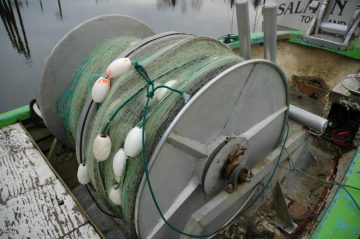 The Washington Fish and Wildlife Commission agreed here Saturday to implement in 2017 the most sweeping lower Columbia River salmon fishing reforms in decades, including the elimination of gillnets in the main stem of the river during spring and summer. By a 7-2 vote, the commission decided to go ahead with implementation this year of reforms first adopted in early 2013 and phased in during a four-year transition period. Oregon’s Fish and Wildlife Commission will address the issue Friday, and there are indications it might not agree with Washington’s position. In a nutshell, the reforms allocate more chinook salmon to sportsmen in the main Columbia and restrict gillnetting to off-channel sites like Youngs Bay, Tongue Point and Blind Slough near Astoria. The reforms also call for any commercial fishing that remains in the main lower Columbia to be done with live-capture methods — such as purse seines and beach seines — designed to harvest hatchery stocks and release wild fish. Read the story here 08:14
The Washington Fish and Wildlife Commission agreed here Saturday to implement in 2017 the most sweeping lower Columbia River salmon fishing reforms in decades, including the elimination of gillnets in the main stem of the river during spring and summer. By a 7-2 vote, the commission decided to go ahead with implementation this year of reforms first adopted in early 2013 and phased in during a four-year transition period. Oregon’s Fish and Wildlife Commission will address the issue Friday, and there are indications it might not agree with Washington’s position. In a nutshell, the reforms allocate more chinook salmon to sportsmen in the main Columbia and restrict gillnetting to off-channel sites like Youngs Bay, Tongue Point and Blind Slough near Astoria. The reforms also call for any commercial fishing that remains in the main lower Columbia to be done with live-capture methods — such as purse seines and beach seines — designed to harvest hatchery stocks and release wild fish. Read the story here 08:14
Fisherman Reaching Out to New England Congressional Delegation to Support Senator Murkowski’s S.B. 437
 Recently, President Obama declared a large area of the Continental Shelf closed to fishing by Executive Order designating New England Coral Canyons and Seamounts National Marine Monument. As a retired fisherman, I am very concerned with more and more Monument area’s that forbid our fisherman from fishing in those waters. I fished these waters back in the 60’s for whiting in March, April, and May. This was good because we laid off fishing for haddock cod flounder groundfish. There were also off shore lobster men there. We had a 90 foot dragger and we saw one the first off shore lobster boats out there. When my Dad saw him in that 45 foot boat, he said he was nuts! Lobster and Red Crab will continue fishing there for seven years, while fishermen were excluded in mid-November. I would like to reach out to our Senators and Congressmen in New England and ask them for their support of Alaska Senator Lisa Murkowski’s Senate Bill 437, the “Improved National Monument Designation Process Act” that in essence would have input from each state before going to Congress.
Recently, President Obama declared a large area of the Continental Shelf closed to fishing by Executive Order designating New England Coral Canyons and Seamounts National Marine Monument. As a retired fisherman, I am very concerned with more and more Monument area’s that forbid our fisherman from fishing in those waters. I fished these waters back in the 60’s for whiting in March, April, and May. This was good because we laid off fishing for haddock cod flounder groundfish. There were also off shore lobster men there. We had a 90 foot dragger and we saw one the first off shore lobster boats out there. When my Dad saw him in that 45 foot boat, he said he was nuts! Lobster and Red Crab will continue fishing there for seven years, while fishermen were excluded in mid-November. I would like to reach out to our Senators and Congressmen in New England and ask them for their support of Alaska Senator Lisa Murkowski’s Senate Bill 437, the “Improved National Monument Designation Process Act” that in essence would have input from each state before going to Congress.
It says, “The President may not declare any area of the exclusive economic zone to be a marine national monument unless: it is specifically authorized by Congress, the President has certified compliance with NEPA, and each state legislature within 100 nautical miles of the proposed monument has approved it. Neither the Department of the Interior nor the Department of Commerce may implement a restriction on the public use of a marine national monument until the expiration of an appropriate review period providing for public input and congressional approval.”
Thanks to Senator Murkowski, we might put a halt to more monuments. After all, those in the fishing industry and the consumer they serve have the most to lose. Senator Murkowski has twenty-six senators on board and I commend her and Senator Sullivan for their efforts to help our fisherman all over.
Thank You, Sam Parisi ,Gloucester Proud to have been a fisherman
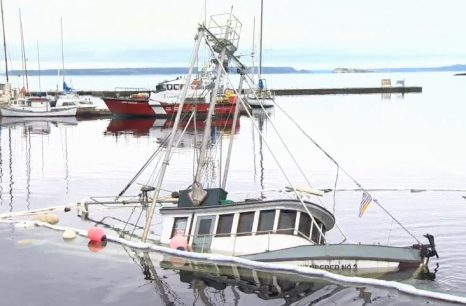
Forty-foot fishing trawler run aground near Powell River
Mounties are investigating after a 40-foot fishing trawler ran aground in a village north of Powell River on Thursday. The vessel ran into trouble and slammed into the marina in the small community of Lund around 10 p.m. According to witnesses, people onboard intentionally crashed into the marina to keep the boat from sinking. Police have remained tight-lipped on the incident, only saying that it’s under investigation. Crews worked to get the trawler off the sea floor on Friday. Video, read the rest here 14:45
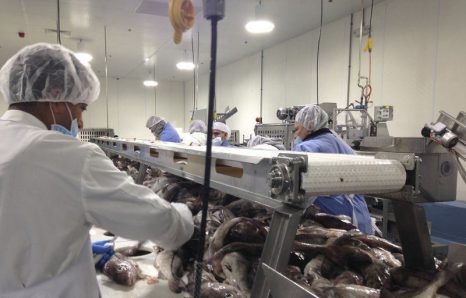
Gloucester Seafood Processing company’s future in question
Illinois-based Mazzetta Co. remains mute on the fate of its Gloucester Seafood Processing subsidiary, but a state agency on Friday confirmed it has spent about five months helping place workers laid off from the Blackburn Industrial Park facility. Officials from Mazzetta, based in Highland Park, Illinois, have not responded to multiple requests for comment, so it is unclear whether the layoffs — which Messina pegged at about 175 — will lead to the international seafood company completely shuttering the Gloucester business it opened in 2015. Read the story here 10:03
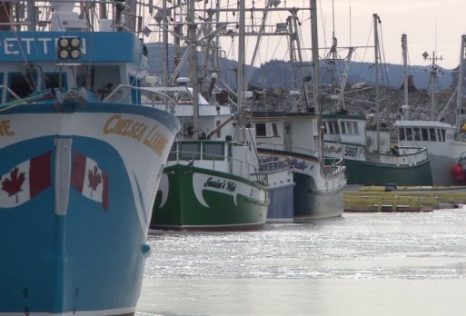
Atlantic Canada’s seafood industry gets a boost as China lowers tariffs
Atlantic Canada’s seafood industry is starting 2017 with a boost for the bottom line thanks to lower tariffs on seafood entering the booming China market. The Jan. 1, 2017, tariff cuts announced just before New Year’s Day by China’s ministry of commerce will benefit about a quarter of Canada’s seafood exports to China. The exports to China were valued at $634 million as of October 2016. Global Affairs Canada told CBC News crab, frozen halibut and albacore are among the export products most benefiting from the tariff reductions. Tariffs on these products will be reduced on average from 11 to five per cent, leaving more money in the pockets of seafood companies in 2017. The tariff on northern shrimp — Pandalus borealis — is also being reduced from five per cent to two per cent. Nova Scotia exports more seafood than any other province. As of October 2016, it had already exported $218 million worth to China, putting it on track for another record year. Read the story here 09:27
Maine Department of Marine Resources wants to raise the price of commercial fishing licenses
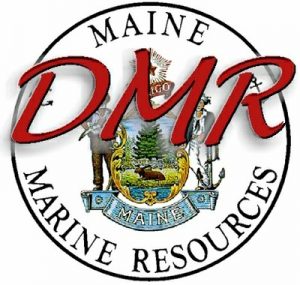 If approved by the Legislature, the proposed fee increases would range from as little as $1 for a Maine resident to harvest green crabs to as much as $114 for a lobsterman with two sternmen. Under the new fee schedule, which would take effect January 2018, the cost of securing a Class III lobster license would top $1,000 for the first time, hitting $1,002. The fee hike would enable the Department of Marine Resources to hire an additional lobster biologist, outfit its science staff with field technology and pay for Marine Patrol officer raises and ballistics vests, among other things, without increasing the department’s $21.3 million bottom line, department spokesman Jeff Nichols said. Read the story here 08:36
If approved by the Legislature, the proposed fee increases would range from as little as $1 for a Maine resident to harvest green crabs to as much as $114 for a lobsterman with two sternmen. Under the new fee schedule, which would take effect January 2018, the cost of securing a Class III lobster license would top $1,000 for the first time, hitting $1,002. The fee hike would enable the Department of Marine Resources to hire an additional lobster biologist, outfit its science staff with field technology and pay for Marine Patrol officer raises and ballistics vests, among other things, without increasing the department’s $21.3 million bottom line, department spokesman Jeff Nichols said. Read the story here 08:36
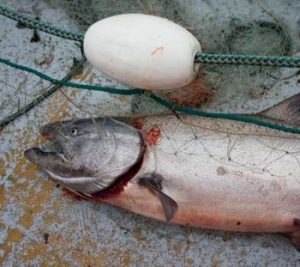
Victorious United Cook Inlet Drift Association file to vacate salmon rule
A Cook Inlet salmon plan will take a lot more work from federal managers in the next few years. The United Cook Inlet Drift Association, an industry group of salmon drift netters, has requested the U.S. District Court of Alaska to vacate a piece of fisheries policy they successfully sued to overturn after an appeal court ruling this past September.In the meantime, the old plan replacing the vacated plan will require some work. “Given the dire situation faced by UCIDA as a result of the federal government’s utter abdication of its (Magnuson-Stevens Act) responsibilities in this important fishery, the Proposed Judgment sought by UCIDA is immediately necessary,” according to the motion filed by UCIDA on Jan. 7. “It would ensure that the checks and balances guaranteed by the Act — including the requirement to use the best available science, to manage the fishery in accordance with the 10 national standards, and to achieve optimum yield — are provided to UCIDA and the fishery in the short term while NMFS works with the council to produce a new FMP.” A three judge panel of the U.S. 9th Circuit Court of Appeals sided with commercial fishing groups against a 2011 decision by the North Pacific Fishery Management Council to remove several Alaska salmon fisheries from the FMP. Read the article here 08:03
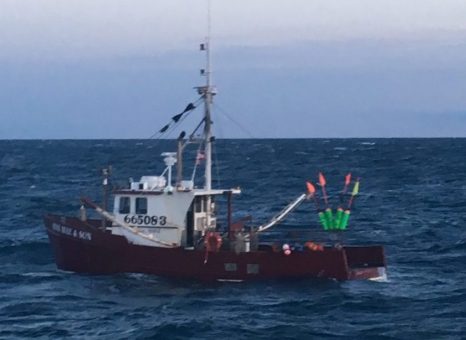
Coast Guard saves 2 lobstermen from sinking vessel off the coast of Maine
The Coast Guard rescued two people off their sinking vessel Friday, about 17 miles off shore from York, Maine. At around 3:15 p.m., Coast Guard Sector Northern New England received a MAYDAY call on VHF-CH. 16 from a crew member reporting their 45-foot lobster boat, Miss Mae & Son, was hit with a rogue wave and the pumps could not keep up with the water. A boat crew from Station Portsmouth Harbor launched their 47-foot response boat and arrived on the scene to find the fishermen standing on the pilot house in full survival gear. Due to safety concerns, the fishermen jumped into the water and the boat crew pulled alongside to bring them on board. The water temperature was 42 degrees and the air temperature was 37 degrees. The fishermen are being brought back to Station Portsmouth Harbor and no injuries have been reported. Sector Northern New England is currently issuing a broadcast to mariners informing them the lobster boat is taking on water and adrift with nobody on board. Link 20:23
New money for Quebec seal hunt – UPEI researcher to study commercial potential of grey seals in Magdalen Islands
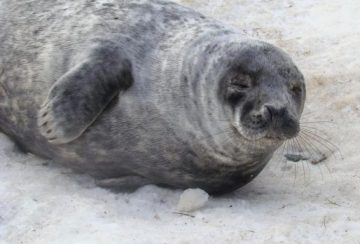 After rejecting a scientific study that involved culling 1,200 grey seals from the Brion Island nature reserve in the Magdalen Islands, the province is helping to finance similar research nearby. The $72,904 in funding will allow a University of Prince Edward Island researcher to study an unspecified number of grey seals harvested on Corps Mort, or Dead Man’s Island, a few kilometres west of the Magdalen Islands archipelago. Wildlife veterinarian and pathologist Pierre-Yves Daoust is pleased the Quebec government decided to support an alternative proposal. Some opponents of the seal hunt are appalled by the decision. “We are deeply disappointed to see this so-called study funded,” said (panhandler) Rebecca Aldworth, executive director of Humane Society International – Canada, calling the study a make-work project for the commercial sealing industry. Read the story here 19:28
After rejecting a scientific study that involved culling 1,200 grey seals from the Brion Island nature reserve in the Magdalen Islands, the province is helping to finance similar research nearby. The $72,904 in funding will allow a University of Prince Edward Island researcher to study an unspecified number of grey seals harvested on Corps Mort, or Dead Man’s Island, a few kilometres west of the Magdalen Islands archipelago. Wildlife veterinarian and pathologist Pierre-Yves Daoust is pleased the Quebec government decided to support an alternative proposal. Some opponents of the seal hunt are appalled by the decision. “We are deeply disappointed to see this so-called study funded,” said (panhandler) Rebecca Aldworth, executive director of Humane Society International – Canada, calling the study a make-work project for the commercial sealing industry. Read the story here 19:28
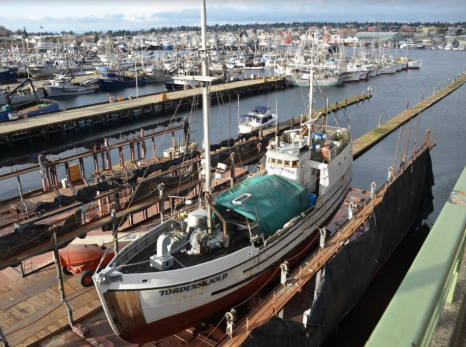
Ballard-built fishing schooner retired, finds a new home at Northwest Seaport
After more than a century of hard fishing in the North Pacific Ocean, the 1911 halibut schooner, Tordenskjold, is retiring to become an operational museum ship and education platform at Northwest Seaport on Lake Union in Seattle. On December 27th, the boat was drydocked at Fishing Vessel Owner’s Marine Ways (located at Fishermen’s Terminal), the shipyard that has cared for the boat for much, if not all, of its 105 years afloat. There, it spent a week undergoing a final inspection survey, laser scanning and repainting before being transferred to Northwest Seaport. Read the story here 15:13
FISH-NL renews call for province to allow in outside buyers; ensure provincially owned quotas caught by inshore harvesters
 In light of declining south coast cod stocks, the Federation of Independent Sea Harvesters of Newfoundland and Labrador (FISH-NL) is renewing its call that the provincial government lift all restrictions and allow out-of-province buyers into the provincial marketplace for all species. FISH-NL also calls on the province to ensure the provincially owned 150-tonne halibut quota is caught by the inshore harvesters of Newfoundland and Labrador. “Fish harvesters cannot survive on 60 cents a pound for cod, which is what they made last year and what they made 30 years before that,” says Ryan Cleary, President of FISH-NL. “It’s time to blow open the doors to the provincial marketplace and allow in outside buyers.” Read the press release here 14:42
In light of declining south coast cod stocks, the Federation of Independent Sea Harvesters of Newfoundland and Labrador (FISH-NL) is renewing its call that the provincial government lift all restrictions and allow out-of-province buyers into the provincial marketplace for all species. FISH-NL also calls on the province to ensure the provincially owned 150-tonne halibut quota is caught by the inshore harvesters of Newfoundland and Labrador. “Fish harvesters cannot survive on 60 cents a pound for cod, which is what they made last year and what they made 30 years before that,” says Ryan Cleary, President of FISH-NL. “It’s time to blow open the doors to the provincial marketplace and allow in outside buyers.” Read the press release here 14:42
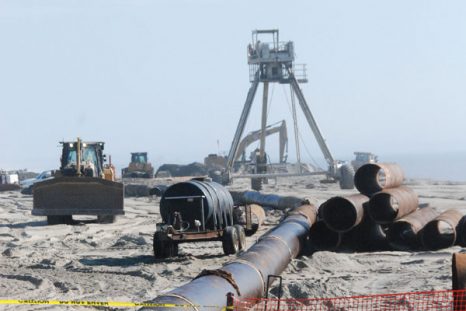
New Jersey Fishermen, beach builders fight for ancient underwater sand hills
Just a few miles off New Jersey’s coast are a series of underwater hills on the ocean floor, made of perfect quality beach sand tens of thousands of years old. The value of these ancient sand hills to sea life, fishermen, scientists and beach-building engineers has set up a fight between those who would protect them and those who would mine them. And that battle is only expected to intensify as rising sea levels are expected to magnify. Meanwhile, every beach on New Jersey’s 127-mile coast will soon have been engineered or replenished after 2012’s Hurricane Sandy, with the U.S. Army Corps of Engineers promising to keep replenishing them for another 50 years. There are only two projects left to do – the Absecon Island project covering Longport through Atlantic City, and the Monmouth/Ocean counties project covering Manasquan to Barnegat inlets. Read the story here 14:12
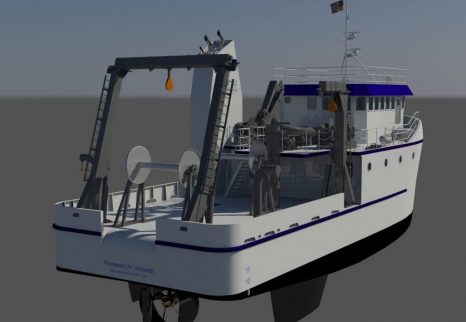
Virginia Institute of Marine Science Orders Research Vessel
Virginia Institute of Marine Science of Gloucester Point, Va. awarded a contract to Meridien Maritime Reparation of Matane, Quebec to construct a 93-foot research vessel. JMS Naval Architects of Mystic, Conn. designed the research vessel to replace VIMS’s current vessel, the R/V Bay Eagle. The primary mission of the Institute’s fleet is to provide inshore and offshore work platforms for the support of fisheries related oceanographic research projects. The new vessel will be capable of conducting fisheries assessments of greater capacity, in deeper waters and with a larger science complement than the Bay Eagle. In addition, the new vessel will greatly expand VIMS’s capability to perform general oceanographic research in the Chesapeake Bay and the mid-Atlantic near coastal waters. The state-of-the-art research vessel offers enormous capability in a small package that is also economic to build and operate. Read the rest here 13:28
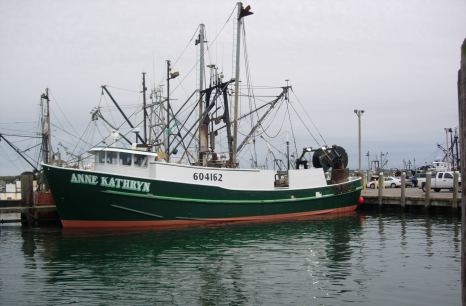
Despite recent tweaks, New England fishermen want more changes in law
In October of 2016 NOAA made changes to NS1, which aims to prevent overfishing while achieving the optimum yield from each fishery. Changes were first proposed in January 2015, and the final rule passed in October 2016 giving regional councils more latitude to set catch limits, a change that was opposed by environmental groups. Fishermen, particularly on the US east coast, have been critical for several years of what they say are rigid timelines that give regulators ten years to rebuild stocks deemed overfished. Conservation groups, on the other hand, see the added flexibility as a weakening of Magnuson-Stevens that undermines the stringent standards that brought many fisheries back to health. Read the story here 12:01
The Magnuson Stevens Act and its Ten Year Rebuilding Timeline: Science or Fiction by Meghan Lapp Click here to read this white paper
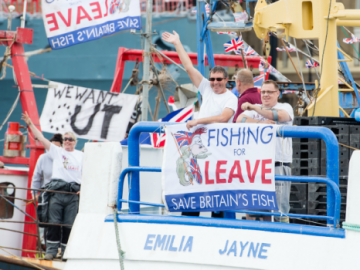
Quota Challenge as English Fishermen Claim They Are Being Sacrificed to Appease Scottish Nationalists
The National Federation of Fishermen’s Organisations (NFFO), which represents fishermen in England, Wales, and Northern Ireland, has railed against the UK government for adopting “a policy of appeasement” towards separatist politicians in Scotland, handing over 1,500 tonnes of England’s fishing quota to the devolved administration in Edinburgh. Scotland voted to remain in the United Kingdom in 2014, but the Scottish National Party (SNP) has retained its grip on the regional executive, albeit as a minority administration. While nominally concerned with achieving full Scottish independence, the leadership of the SNP are staunchly in favour of the European Union (EU). Following the Brexit vote last year, SNP leader Nicola Sturgeon has been pressuring Theresa May to either keep the UK in the Single Market or find a way for Scotland to remain in it while the rest of the UK leaves. Read the story here 11:26
McCrory set stage for latest threat to shrimping
 The North Carolina Marine Fisheries Commission appears poised to pass a new regulation that many critics say will drastically impact, perhaps even shut down, North Carolina’s shrimping industry. On Jan. 17, the Marine Fisheries Commission will be holding a hearing in New Bern on the rule, which would essentially make all inland waterways a “secondary nursery” for fin fish, significantly curtailing the use of trawl nets to harvest shrimp. After a huge turnout at a public hearing in 2013, the MFC denied a petition from an individual angler to implement similar rules. But with anti-shrimping forces possessing what appears to be a super-majority on the MFC, the petition and hearings are back, this time proposed by the North Carolina Wildlife Federation, a group closely allied with the Coastal Conservation Association — a special interest group that has long sought to ban shrimp trawls and finfish netting from the state’s inland waters. Ironically, local commercial fishermen, who have heavily supported the GOP in state elections, have former Governor Pat McCrory to thank for their predicament. Read the story here 10:56
The North Carolina Marine Fisheries Commission appears poised to pass a new regulation that many critics say will drastically impact, perhaps even shut down, North Carolina’s shrimping industry. On Jan. 17, the Marine Fisheries Commission will be holding a hearing in New Bern on the rule, which would essentially make all inland waterways a “secondary nursery” for fin fish, significantly curtailing the use of trawl nets to harvest shrimp. After a huge turnout at a public hearing in 2013, the MFC denied a petition from an individual angler to implement similar rules. But with anti-shrimping forces possessing what appears to be a super-majority on the MFC, the petition and hearings are back, this time proposed by the North Carolina Wildlife Federation, a group closely allied with the Coastal Conservation Association — a special interest group that has long sought to ban shrimp trawls and finfish netting from the state’s inland waters. Ironically, local commercial fishermen, who have heavily supported the GOP in state elections, have former Governor Pat McCrory to thank for their predicament. Read the story here 10:56

A Look Back At Cape Cod’s Fish Traps
My father was a commercial tuna fisherman in the 1940s and 50s, when the predominant way to catch tuna in New England waters was using weirs, or “fish traps.” Weir fishermen rely on nets and nature to make their catches. These weirs consist of long poles driven into the ocean floor, with nets strung from them. A long, straight line of poles and nets running in an offshore direction from shallower water toward deeper water would create a barrier, and at the deepest point of this barrier, there would be a heart-shaped chamber with a purse seine strung from it. The fish would swim along the coast until they were blocked by the trap. Their natural instinct to swim toward deeper water would bring them into the heart of the net. Once there, they would get disoriented and, unable to find an exit, be trapped until the fishermen returned to harvest them. More images, read the story here 10:33
In advance of its annual meeting in Victoria, British Columbia, Jan. 23-27, IPHC posts catch limit proposals
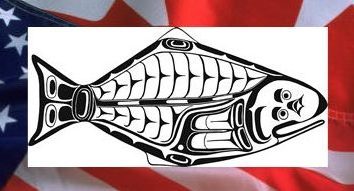 In advance of its annual meeting in Victoria, British Columbia, Jan. 23-27, the International Pacific Halibut Commission accepted proposals through Dec. 31 on catch limits or harvest advice. Of the eight proposals noted so far by the IPHC, six were specific to Area 2C in Southeast Alaska, including one from a group of processors and fishing associations who contend that reductions in Area 2C catch limits are not justified by current data or trends. Area 2C stocks are increasing at current harvest rates, and the Area 2C survey weight per unit of effort is higher than any other IPHC area coast-wide, the proposal said. The document was signed by Kathy Hansen, Southeast Alaska Fishermen’s Alliance; Megan O’Neil, Petersburg Vessel Owner’s Association; Dale Kelley, Alaska Trollers Association; Dan Falvey, Alaska Longline Fishermen’s Association Joe Morrelli, Seafood Producers Cooperative; Don Spigelmyer, Icicle Seafoods; and Mike Erickson, Alaska Glacier Seafoods. Read the rest here 09:40
In advance of its annual meeting in Victoria, British Columbia, Jan. 23-27, the International Pacific Halibut Commission accepted proposals through Dec. 31 on catch limits or harvest advice. Of the eight proposals noted so far by the IPHC, six were specific to Area 2C in Southeast Alaska, including one from a group of processors and fishing associations who contend that reductions in Area 2C catch limits are not justified by current data or trends. Area 2C stocks are increasing at current harvest rates, and the Area 2C survey weight per unit of effort is higher than any other IPHC area coast-wide, the proposal said. The document was signed by Kathy Hansen, Southeast Alaska Fishermen’s Alliance; Megan O’Neil, Petersburg Vessel Owner’s Association; Dale Kelley, Alaska Trollers Association; Dan Falvey, Alaska Longline Fishermen’s Association Joe Morrelli, Seafood Producers Cooperative; Don Spigelmyer, Icicle Seafoods; and Mike Erickson, Alaska Glacier Seafoods. Read the rest here 09:40
Stakeholders Seek Baltimore Canyon National Marine Sanctuary Designation Withdrawal
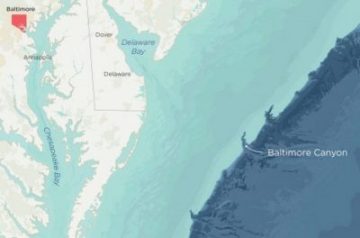 Two weeks after the National Aquarium expressed a willingness to consider withdrawing an application to designate the Baltimore Canyon as a , a coalition of local marina owners and boat captains last week fired off a letter seeking to hold him to his word. Last week, attorney Mark Cropper, who represents multiple resort area marinas, boat owners and captains and other stakeholders in the resort area, fired off his own letter to Racanelli essentially holding the National Aquarium CEO to his word and calling for the application to be withdrawn as offered. Read the story here 08:47
Two weeks after the National Aquarium expressed a willingness to consider withdrawing an application to designate the Baltimore Canyon as a , a coalition of local marina owners and boat captains last week fired off a letter seeking to hold him to his word. Last week, attorney Mark Cropper, who represents multiple resort area marinas, boat owners and captains and other stakeholders in the resort area, fired off his own letter to Racanelli essentially holding the National Aquarium CEO to his word and calling for the application to be withdrawn as offered. Read the story here 08:47
Controlling Agreement? Labrador fisherman Kirby Elson is ending his legal challenge filed with the Federal Court
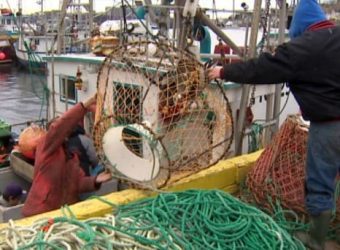 Nova Scotia fish harvester Susan Beaton is breathing a little easier now that a legal challenge that could have overturned the rules protecting the independence of Atlantic Canada’s inshore fishery appears to be over. “I think it’s very good news, at least for those of us who care about the owner-operator policy,” said Beaton, who is from Antigonish. The federal government’s owner-operator policy stipulates the main benefits of inshore fishing licences must go to the licence holders. Kirby Elson, a fisherman from Cartwright N.L., a small fishing town in Labrador, had launched a legal challenge, appealing a decision by the federal fisheries minister to take away his commercial fishing licences. But the case ended quietly and abruptly this week when Elson notified his lawyers Jan. 10 that he wanted to “immediately withdraw from this litigation,” according to documents filed with the Federal Court. Elson had refused to obey a DFO requirement that he exit a so-called “controlling agreement” with two Newfoundland and Labrador fish processors. Read the story here 19:31
Nova Scotia fish harvester Susan Beaton is breathing a little easier now that a legal challenge that could have overturned the rules protecting the independence of Atlantic Canada’s inshore fishery appears to be over. “I think it’s very good news, at least for those of us who care about the owner-operator policy,” said Beaton, who is from Antigonish. The federal government’s owner-operator policy stipulates the main benefits of inshore fishing licences must go to the licence holders. Kirby Elson, a fisherman from Cartwright N.L., a small fishing town in Labrador, had launched a legal challenge, appealing a decision by the federal fisheries minister to take away his commercial fishing licences. But the case ended quietly and abruptly this week when Elson notified his lawyers Jan. 10 that he wanted to “immediately withdraw from this litigation,” according to documents filed with the Federal Court. Elson had refused to obey a DFO requirement that he exit a so-called “controlling agreement” with two Newfoundland and Labrador fish processors. Read the story here 19:31
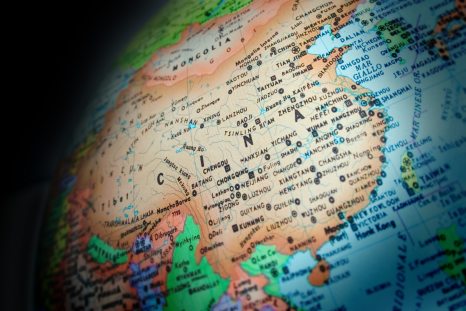
Caught In Alaska, Processed In China: Does Trump Make A Good Point?
When Donald J. Trump announced his candidacy in 2015 he created quite a stir with many of his statements. He spoke a great deal about securing borders, fixing the economy and especially the effects of China on the United States. Regardless of whether you agree with his plans and ideas of how to tackle these issues, you have to agree that these issues really do exist, especially the influence of China. The financial power of China overpowers not only American consumer good production, but also greatly affects the competitive of US fisheries. One of the major secrets to China’s fiscal strength is its over-abundance of very cheap labor. There is such a difference in labor between the US and China that it has greatly changed the way the US seafood industry works. Previously it was ideal to catch the fish in Alaska, fully process it in Alaska (i.e. filleting), and then ship it down to the mainland US where it would be consumed. Today it is just as common to catch the fish in Alaska, freeze it, ship it to China, process the seafood there, and then ship it to the mainland US for sale. This difference makes seafood producers millions of extra profits every year. This is common for all sorts of Alaskan seafood, including Alaskan Pollock, Pacific Cod, and especially Salmon. Read the article here 18:13






